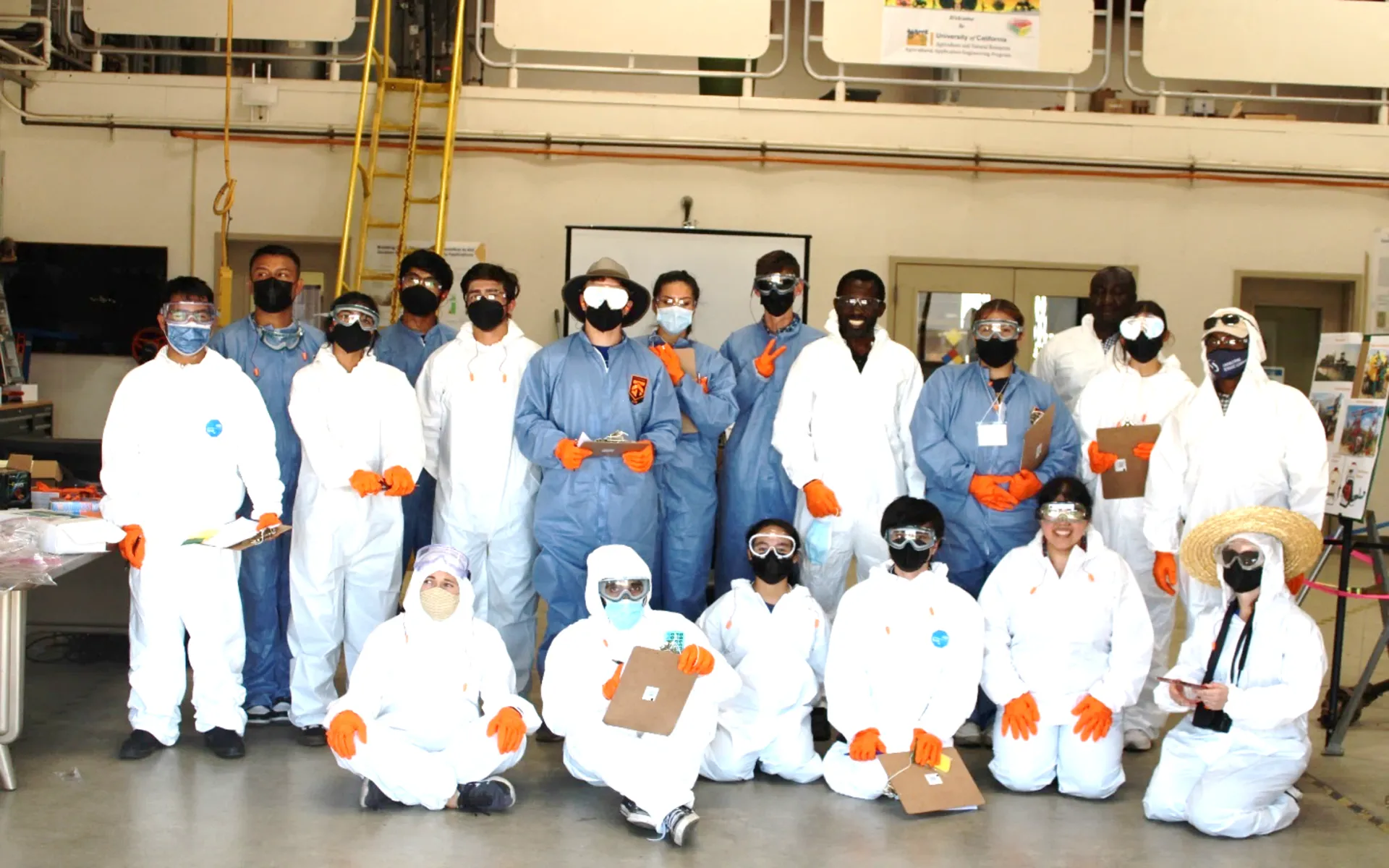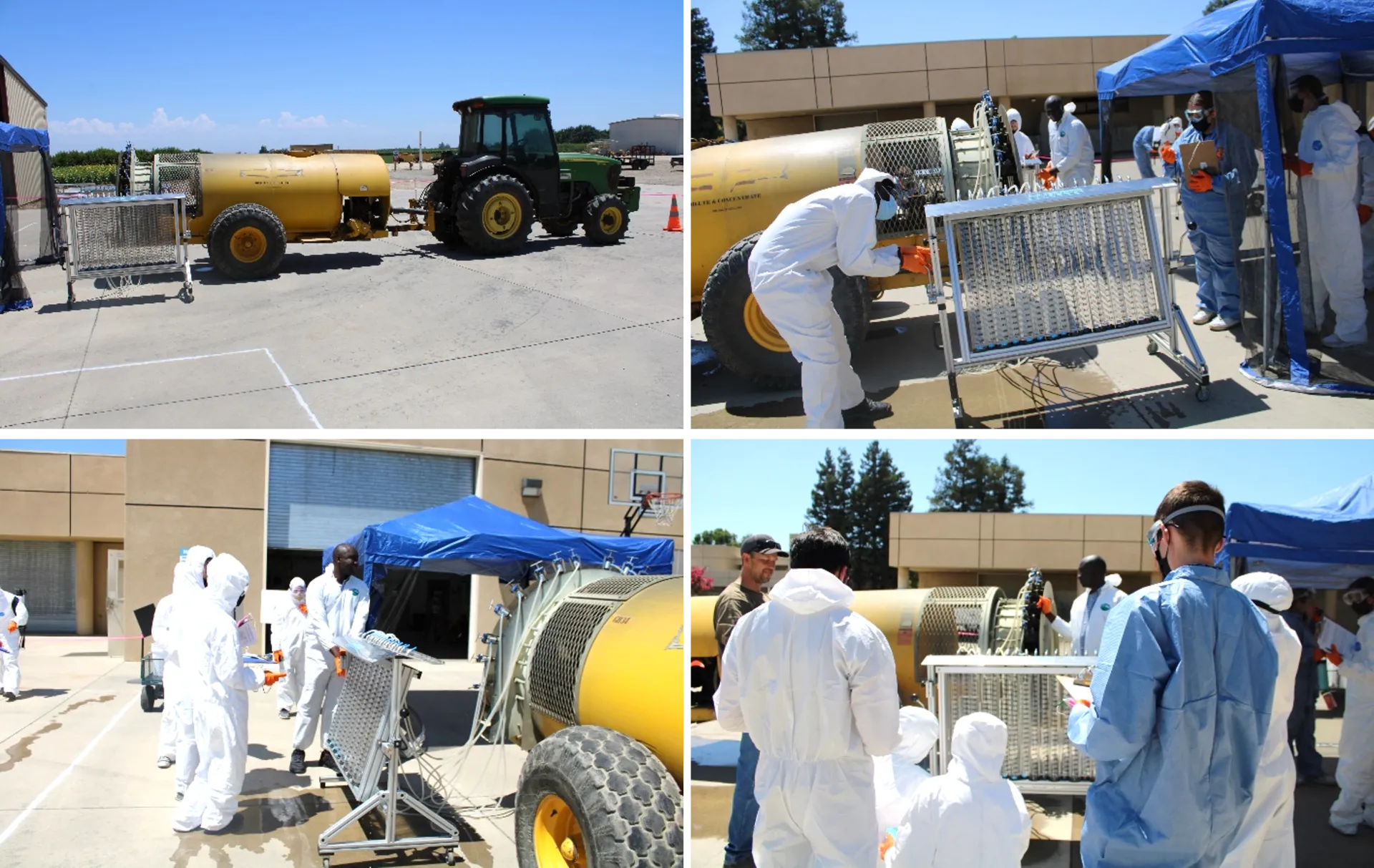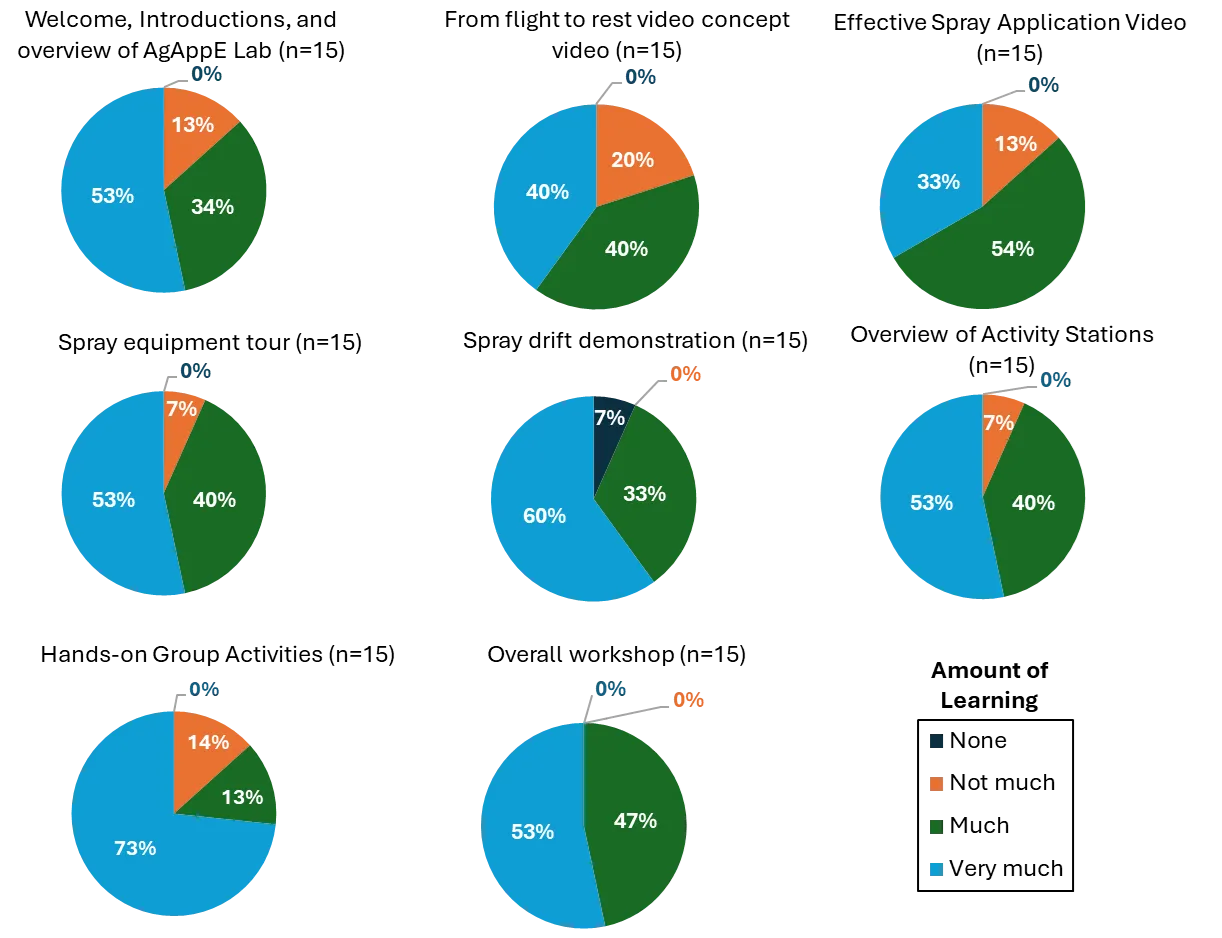Social media summary
After participating in a hands-on workshop at the Agricultural Application Engineering (AgAppE) Lab at the Kearney Agricultural Research and Extension (KARE) Center, 100% of undergraduate students reported learning gains in spray application technology, sparking interest in careers in agricultural engineering and technology.

The Issue
The San Joaquin Valley is the most productive agricultural area in the world, making it one of the premier places for students to learn about career opportunities in agricultural sciences. With the present promotion of science, technology, engineering, mathematics (STEM), many students do not realize that computer coding, robotics, and artificial intelligence have a place in agriculture. Yet, these areas intersect with agricultural production challenges in ways that present many exciting careers in agriculture. Creating awareness for students who are going to become the innovators of tomorrow is always a positive endeavor that can lead to great benefits to society. Gaining such awareness much earlier provides a longer-term opportunity for students to explore and participate in high-impact experiences (Parrella et al., 2023) that will help them to develop employability skills needed in agricultural STEM careers.
How UC Delivers
In July of 2022, UCCE specialist Dr. Peter Ako Larbi and his AgAppE Lab staff delivered a 2-hour hands-on outreach workshop on spray application as part of a tour of the KARE Center. The tour was intended to broaden the students’ exposure to agricultural research and extension involving STEM. The visiting group consisted of the 2022 cohort of first year, second year, and transfer students in the San Joaquin Valley Food and Agriculture Cyberinformatics Tools and Science (FACTS) Bridge Program at the University of California, Merced (UC-Merced). In attendance were fifteen undergraduate students, one graduate student, and two faculty instructors, Drs. Colleen Naughton and Safeeq Khan. Each student was provided a clipboard with fill-in notes, some reference materials, and a calculator for engaging with the presentations. The outreach engagement also fulfilled a deliverable of Dr. Larbi’s Pest Management Alliance Grant sponsored by the California Department of Pesticide Regulation (DPR).
Led by Dr. Larbi, the workshop started with an overview of the AgAppE Lab/Program, viewing of the “From flight to rest – the journey of a droplet” and “Effective Spray Application - from uncertainty to confidence” concept videos, and a spray equipment tour. These were followed by a spray drift demonstration in collaboration with postdoc scholar Dr. Abiodun Abioye. Dr. Larbi continued with an overview and demos of activity stations planned for student engagement. He also did an all-terrain vehicle (ATV) boom sprayer demonstration.


After a short break, the students were divided into four groups and given the opportunity to complete guided hands-on exercises at the Airblast Spray Advisor web app station, the nozzle types and flow rate station, the airblast sprayer output measurement station, and the backpack sprayer calibration station. Students were supported by several team members, including Dr. Abioye, lab assistant Daniel Cabrera, lab assistant Sharon Asakawa, KARE Center staff research associate (SRA) Ryan Puckett, and UCCE specialist Jackie Atim.




The workshop ended with a wrap-up and evaluation session where students completed an evaluation form to rate their learning in the various sessions. The amount of learning gained by the students was categorized on the evaluation form as “None”, “Not Much”, “Much”, and “Very Much”.
The Impact
The student participants were highly engaged throughout the 2-hour workshop. All 15 undergraduate students completed the evaluation forms. A summary evaluation results by topics is shown in the graphic below. The results indicates that the participants’ sentiments and reported learning gains varied during the course of the workshop, and some appreciated certain aspects more than others. However, 100% of the respondents revealed that they acquired “much” or “very much” learning from the entire workshop, indicating an effective workshop.

A major goal of this tour was to increase knowledge of agriculture and use of technology in agriculture in California. The cohort of students were early in their college degree education (first year, second year, and transfer students). According to Parrella et al. (2023), college or undergraduate students who “participate in high-impact experiences early on in their degree program” benefit from being better able to navigate their career interests. The spray application workshop experience was meant to pique their interest in the subject of spray application engineering and potentially encourage them to consider a career in related areas. Given its high impact, based on the evaluation, the experience potentially improved their college readiness and access which aligns with UC ANR condition change of developing a qualified workforce for California. Developing such a qualified workforce widens the span of opportunities for individuals to become and stay competitive to promote a robust and thriving state economy. Dr. Larbi’s AgAppE Lab and the KARE Center continue to offer such exposures through tours and workshops to increase awareness of advancements in agriculture, technology, and research.
Reference
Parrella, J.A., Leggette, H.R., Murphrey, T.P., Esquivel, C., 2023. Investigating Students’ Career-Readiness in the Agricultural Sciences: A Phenomenological Case Study. J. Res. Tech. Careers 7, 20–44.

